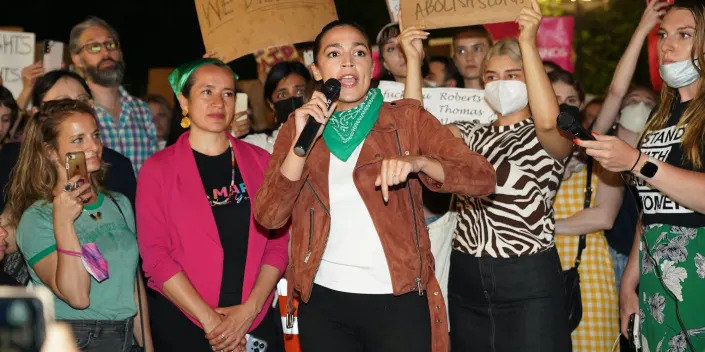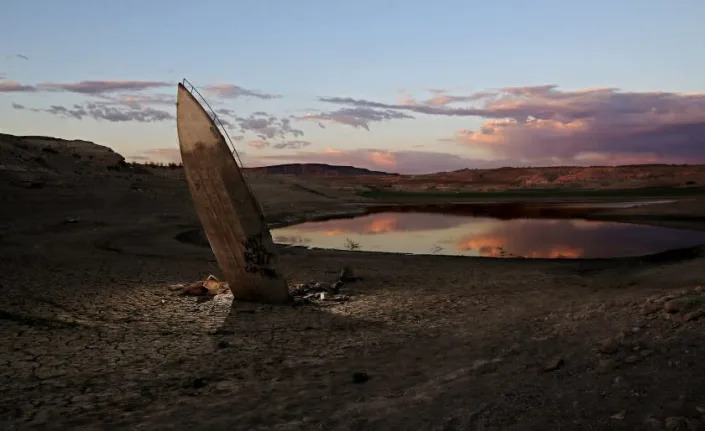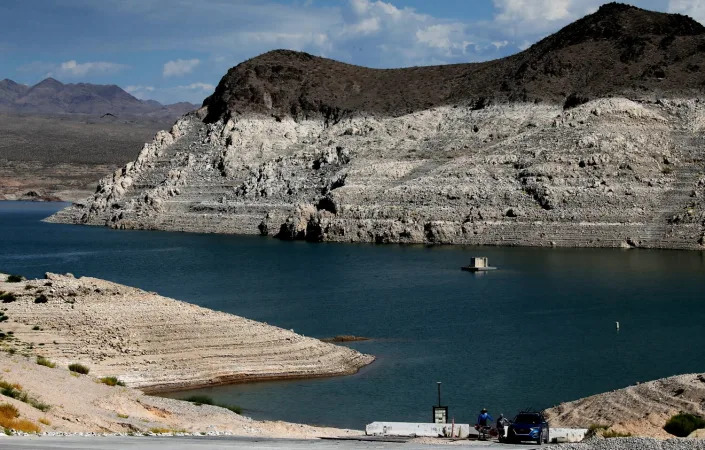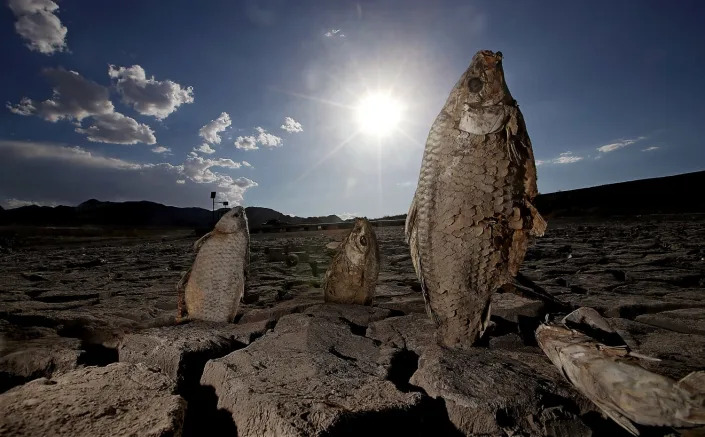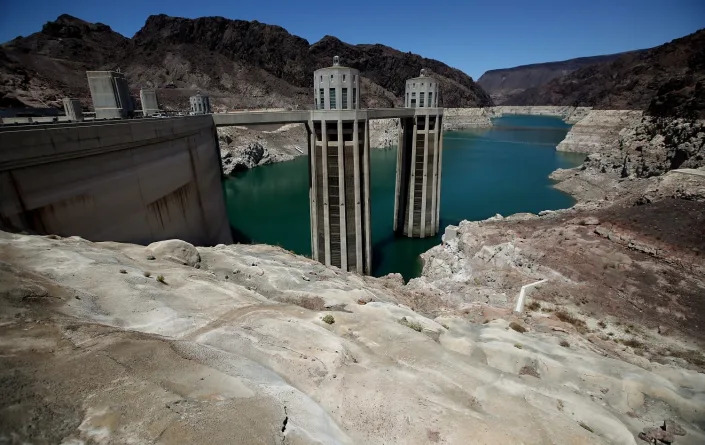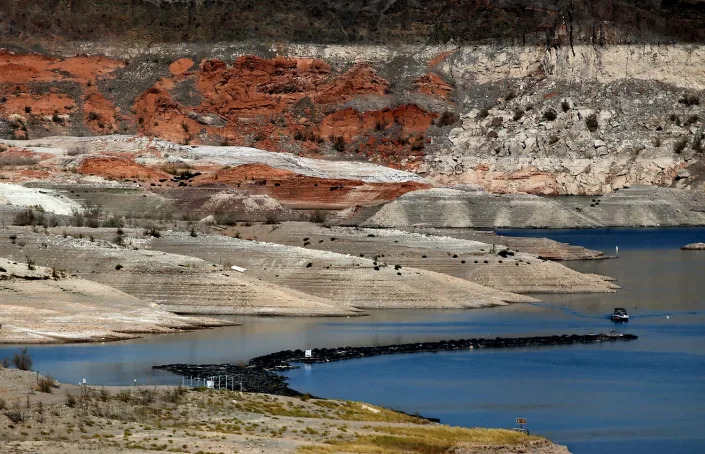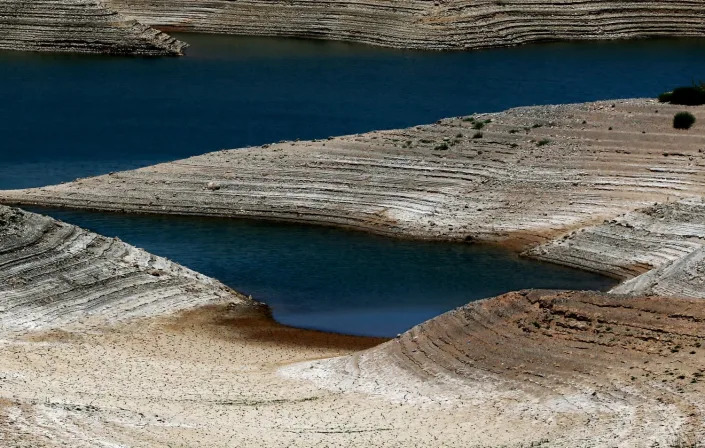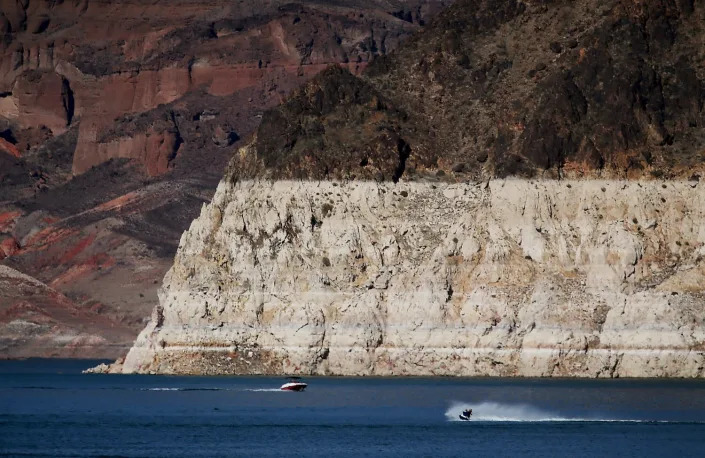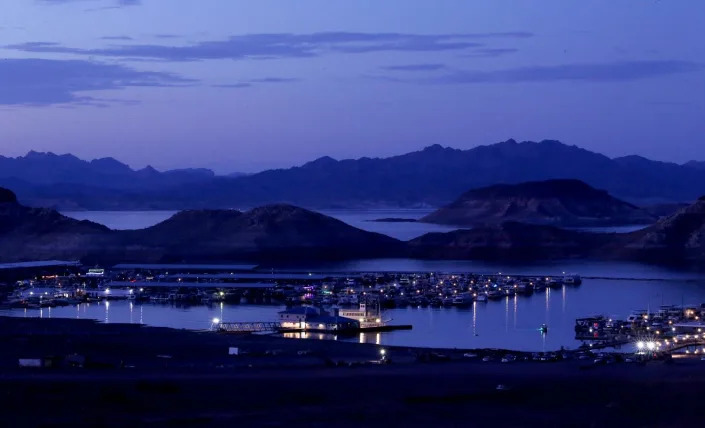Justice Neil Gorsuch fumes that the Supreme Court 'failed' to 'honor this Nation's promises' as it rolled back tribal authority in Oklahoma
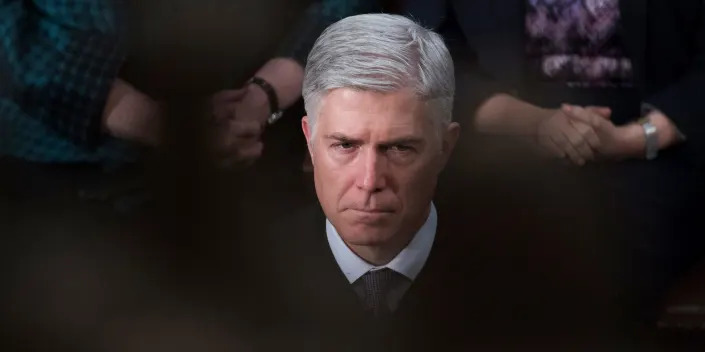
The Supreme Court Wednesday authorized Oklahoma to handle certain crimes on Native American land.
Justice Neil Gorsuch blasted the ruling, saying it "failed" to "honor this Nation's promises."
A 2020 ruling said only tribal and federal authorities could prosecute crimes in the jurisdiction.
Justice Neil Gorsuch on Wednesday blasted the Supreme Court for handing states more power over Native American land, saying the ruling failed to "honor this Nation's promises."
The nation's highest court delivered a victory to state authorities, declaring that Oklahoma officials had jurisdiction over crimes involving non-Native Americans in Native American territory.
The 5-4 majority opinion, written by Justice Brett Kavanaugh, received the votes of Chief Justice John Roberts and Justices Clarence Thomas, Samuel Alito, and Amy Coney Barrett. Gorsuch and the court's three liberal justices — Stephen Breyer, Elena Kagan, and Sonia Sotomayor — dissented.
"Truly, a more ahistorical and mistaken statement of Indian law would be hard to fathom," Gorsuch wrote in a fiery dissenting opinion.
Wednesday's ruling limits a Supreme Court decision handed down two years ago that said a large chunk of eastern Oklahoma was considered Native American reservations, meaning only tribal and federal authorities — not state officials — could handle criminal prosecutions on that land.
Gorsuch authored that 2020 ruling, and the court's liberal wing joined him then as well, forming the majority at the time. But now, the court has an expanded 6-3 conservative majority. Gorsuch, who's from Colorado, has had a track record of standing up for tribal rights in his opinions.
"One can only hope the political branches and future courts will do their duty to honor this Nation's promises even as we have failed today to do our own," Gorsuch wrote in his dissent.
The case, known as Oklahoma v. Castro-Huerta, concerned Victor Castro-Huerta, a non-Native American who was convicted by state authorities of neglecting his 5-year-old stepdaughter, a Native American, in Cherokee Nation territory. An Oklahoma appeals court tossed out his conviction after the 2020 Supreme Court ruling. Federal authorities then stepped in and charged Castro-Huerta, who pleaded guilty. He has not been sentenced.
The state's Republican governor, Kevin Stitt, celebrated Wednesday's ruling as a "clear victory for all four million Oklahomans, the state of Oklahoma, and the rule of law."
"Justice has been delayed and denied to thousands of Native victims in our state for no reason other than their race. Now Oklahoma law enforcement can help uphold and enforce the law equally, as we have done for over a century," he said in a statement.
The head of the Cherokee Nation on Wednesday said he was "disappointed" in the Supreme Court's decision.
"The dissent today did not mince words — the Court failed in its duty to honor this nation's promises, defied Congress's statutes, and accepted the 'lawless disregard of the Cherokee's sovereignty,'" Cherokee Nation Principal Chief Chuck Hoskin Jr. said in a statement.
Tribe members react to Supreme Court decision that strikes at the issue of tribal sovereignty
Stacey Wescott/Chicago Tribune/TNS
Darcel Rockett, Chicago Tribune
Fri, July 1, 2022
CHICAGO -- Within a week’s time the Supreme Court has overturned Roe v. Wade and ruled that law enforcement officers can’t be sued when they violate the rights of criminal suspects by failing to provide the familiar Miranda warning before questioning them. And on Wednesday came the ruling that Oklahoma has the authority to prosecute non-Native Americans who commit crimes against a Native person on tribal lands, giving jurisdiction to the state and local law enforcement where prior it was solely federal and tribal.
This week’s 5-4 decision stems from the case of Oklahoma v. Castro-Huerta, where Oklahoma state prosecutors charged Victor Castro-Huerta for the malnourishment and neglect of his 5-year-old disabled stepdaughter in 2015. She was a citizen of the Eastern Band of Cherokee Indians, and the abuse took place on the Cherokee Reservation, but Castro-Huerta is not a Native American. He was sentenced to 35 years in prison, however he challenged the decision under 2020′s Supreme Court McGirt v. Oklahoma ruling where he can only be federally prosecuted. McGirt upheld that under the Major Crimes Act, Oklahoma cannot prosecute crimes by Native citizens on tribal lands without federal approval.
The latest development will have an impact on tribal sovereignty and not just in Oklahoma, according to members of local Native tribes.
“Justice Kavanaugh’s majority opinion brazenly defies not only long-held U.S. Supreme Court precedent in regards to criminal jurisdiction in Indian Country, but also the subject-matter expertise of his own colleague, Justice Gorsuch,” said Doug Kiel, a citizen of the Oneida Nation and professor of Indian legal history at Northwestern University. “In a handful of states that are subject to Public Law 280 (1953), this kind of state criminal jurisdiction does apply, by act of U.S. Congress. Oklahoma is not a Public Law 280 state; nonetheless, Kavanaugh’s majority opinion pretends it is. The earlier McGirt v. Oklahoma (2020) decision — in which Gorsuch emphatically wrote, “We hold the government to its word” — respected tribal sovereignty and mapped out a new legal future. This decision in Oklahoma v. Castro-Huerta, on the other hand, has little regard for the legal significance of Indian reservation boundaries.”
Beth Redbird, an Oglala Lakota and Oklahoma Choctaw, and co-director of Northwestern University’s Tribal Constitution Project, which is cataloging constitutions of North American Indigenous tribes and analyzing the development of tribal sovereignty in U.S. history, said there’s a significant social cost to decisions like this. She said whereas the McGirt decision was amazing, in that the Supreme Court recognized tribal sovereignty, the Castro-Huerta decision on jurisdiction — the thing promised in treaties to Indians — is yet another attempt by the federal government to take back the final acknowledgment of that promise in “all sorts of pretzel twisting ways.”
“This treatment of reservations as not really government entities where we don’t provide them the legitimacy of other governments creates other tensions,” Redbird said. “What we do with the legal system in the United States, is we say that a group of people is sovereign, and then we give them no power. We tell them they’re responsible for the problems and we give them no tools for solutions. And that has consequences up to and including people who can take advantage of that. This is a prime example of the ways in which tribal sovereignty is weaponized. Sovereignty is a double-edged sword. It can help make our lives better, but when we get it, people are afraid of sovereign Indians.”
Justice Neil Gorsuch wrote the Oklahoma v. Castro-Huerta dissent: “Moving forward, the Court cheerily promises, more prosecuting authorities can only “help.” Three sets of prosecutors — federal, tribal and state — are sure to prove better than two. But again, it’s not hard to imagine reasons why the Cherokee might see things differently. If more sets of prosecutors are always better, why not allow Texas to enforce its laws in California? Few sovereigns or their citizens would see that as an improvement. Yet it seems the Court cannot grasp why the Tribe may not. The real party in interest here isn’t Mr. Castro-Huerta but the Cherokee, a Tribe of 400,000 members with its own government. Yet the Cherokee have no voice as parties in these proceedings.”
Justice Brett Kavanaugh wrote for the majority, citing states have jurisdiction over Indian lands unless it is displaced by Congress or unlawfully infringes on tribal sovereignty. He added the court’s decision would not infringe on tribal self-government.
“A state prosecution of a crime committed by a non-Indian against an Indian would not deprive the tribe of any of its prosecutorial authority. That is because, with exceptions not invoked here, Indian tribes lack criminal jurisdiction to prosecute crimes committed by non-Indians such as Castro-Huerta, even when non-Indians commit crimes against Indians in Indian Country.”
Matthew Fletcher, foundation professor of law at Michigan State University College of Law and visiting professor for the UC-Hastings Indigenous Law Program is a citizen of the Grand Traverse Band of Ottawa and Chippewa Indians. He said a reversal of the decision could be made one of two ways — by doing what Justice Gorsuch said at the end of his dissent, which was to urge Congress to restore what the majority had taken away. The other way is more of a local, reservation by reservation, state by state way where tribes could persuade states not to exercise the jurisdiction even if they want to, in a more negotiated kind of situation. He says both are viable.
“This is not a decision that is rooted in law,” Fletcher said. “This is a decision where the Court said, the majority says: ‘over the last century and a half we’ve changed our minds on Indian law, we’ve been more deferential to states than we originally were. And so we’re just going to take that one additional step and give the state this power.’ Congress is the one that makes law in Indian Country, not the Supreme Court and today the Supreme Court decided that it makes law, too.”
“Historians of federal Indian law and policy have long referred to “pendulum swings,” and the shift from McGirt to Castro-Huerta is certainly a big swing,” Kiel said. “In one moment, the federal government embraces nation-to-nation relationships, and in the next, it disrespects the notion of Indigenous governance. In this case, we learn if the respect of Indigenous sovereignty comes at the price of non-Native convenience, it cannot stand.”




FELICIA FONSECA and LINDSAY WHITEHURST
Fri, July 1, 2022
FLAGSTAFF, Ariz. (AP) — A U.S. Supreme Court ruling expanding state authority to prosecute some crimes on Native American land is fracturing decades of law built around the hard-fought principle that tribes have the right to govern themselves on their own territory, legal experts say.
The Wednesday ruling is a marked departure from federal Indian law and veers from the push to increase tribes' ability to prosecute all crimes on reservations — regardless of who is involved. It also cast tribes as part of states, rather than the sovereign nations they are, infuriating many across Indian Country.
“The majority (opinion) is not firmly rooted in the law that I have dedicated my life to studying and the history as I know it to be true," said Elizabeth Hidalgo Reese, an assistant law professor at Stanford University who is enrolled at Nambé Pueblo in New Mexico. ”And that’s just really concerning,”
Federal authorities largely maintained exclusive jurisdiction to investigate serious, violent crime on reservations across much of the U.S. when the suspect or victim is Native American. The 5-4 decision from the high court in a case out of Oklahoma means states will share in that authority when the suspect is not Native American and the victim is.
Criminal justice on tribal lands can be a tangled web already, and the ruling will likely present new thorny questions about jurisdiction, possible triple jeopardy and how to tackle complicated crimes in remote areas where resources are stretched thin. States had power to prosecute crimes involving only non-Natives on reservations even before this week's Supreme Court ruling.
“It will have an impact in Indian Country, so only the future will tell us if it’s good or not,” said Robert Miller, a law professor at Arizona State University and citizen of the Eastern Shawnee Tribe. “Is it better to have more criminal prosecutions, more governments enforcing crimes or less?”
Justice Neil Gorsuch wrote a scathing dissent joined by the court’s three liberal members, saying “one can only hope the political branches and future courts will do their duty to honor this Nation’s promises even as we have failed today to do on our own.”
Principal Chief Chuck Hoskin Jr. of the Cherokee Nation said the court “failed in its duty to honor this nation’s promises, defied Congress’s statutes and accepted the ‘lawless disregard of the Cherokee’s sovereignty.’"
It's unclear how the decision ultimately will play out for tribes, but there is precedent. Congress established a law in 1953 that's known as PL-280, partly to relieve the federal government of funding public safety on some reservations. The law resulted in state authority over crime in several states, including Alaska and California where about three-fifths of the 574 federally recognized tribes are based.
As in the decision in Oklahoma v. Castro-Huerta, tribes did not consent. Neither Congress then nor the Supreme Court now funded the expansion of state authority on tribal land.
“That's far from the first time,” said Lauren van Schilfgaarde, a member of Cochiti Pueblo in New Mexico who directs the Tribal Legal Development Clinic at the UCLA. “Federal Indian law is just littered with cases in which tribes were denied the opportunity to speak on their own behalf.”
Federal authorities have long been criticized for declining to prosecute cases in Indian Country — roughly a third, according to the U.S. Department of Justice. Authorities in PL-280 states also have been criticized for a lack of response to crime in Indian Country, where law enforcement officers often must travel long distances to investigate reported crimes.
Tribes asserted in court filings and elsewhere that the federal government — which has a political relationship with tribes through treaties and acts of Congress — is the appropriate sovereign entity to handle criminal matters. Congress maintains control over Native American and Alaska Native affairs, which are overseen by the Department of Interior.
States have no such obligation to tribes.
“One of the interesting things for me is how the priority question shakes out,” said Kevin Washburn, who is Chickasaw and dean of the University of Iowa’s law school. “That is, will feds take primacy or will state prosecutors take primacy in cases? And how do they decide who will be first or who will move at all?” asked Washburn, a former assistant Interior secretary for Indian Affairs.
While the Supreme Court ruling is an expansion of power for states, it doesn’t come with a similar increase for tribes. A 1978 high court ruling stripped tribes of any criminal jurisdiction over non-Natives on their reservations. The reauthorization of the Violence Against Women Act in 2013 restored some of that authority in limited domestic violence cases and further expanded it earlier this year.
Less than 1% of federally recognized tribes in the U.S. have implemented that authority, with one of the most recent being the Salt River Pima-Maricopa Indian Community outside Phoenix. It raises the possibility of tribes, the state and the feds prosecuting a suspect for the same offense. Another U.S. Supreme Court ruling issued last month said tribal members prosecuted in certain tribal courts also can be prosecuted based on the same incident in federal court.
Most tribes can sentence convicted offenders to only a year in jail, regardless of the crime. A 2010 federal law increased tribes' sentencing authority to three years for a single crime, but few tribes have met the federal requirements to use that authority. That includes having public defenders, establishing or updating criminal codes, and having law-trained judges.
Oklahoma has its own unique history on tribal affairs, including a 2020 U.S. Supreme Court decision known as McGirt v. Oklahoma that said a large chunk of the eastern part of the state remains a Native American reservation. That ruling, written by Gorsuch, left the state unable to prosecute Native Americans accused of crimes on tribal lands that include most of Tulsa, the state’s second-largest city with a population of about 413,000.
The Supreme Court refused to reconsider McGirt. Oklahoma filed a flurry of petitions related to the case, leading to the most recent decision on state power over crime on reservations that extends broadly across the U.S. Justice Brett Kavanaugh, writing for the majority, said the state's interest lies in protecting all victims of crime.
Tulsa Mayor G.T. Bynum, a Republican, applauded the ruling and pledged to work with the state and the tribal nations “who are our partners in building a safe city.”
___
Whitehurst reported from Salt Lake City. Fonseca covers Indigenous affairs on the AP's Race and Ethnicity team. Follow Whitehurst on Twitter at https://twitter.com/lwhitehurst and Fonseca at https://twitter.com/FonsecaAP

